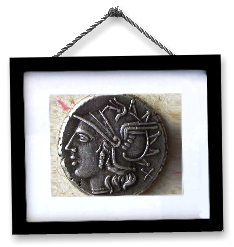QUIRKY LATIN RULES
Like in English, Latin has many weird rules. Below are the ones you will be learning in Latin I.
- ablative of place where: location on or in is shown by the ablative case with the preposition in.
- ex: In silva est. = He is in the forest.
- ex: In insula pugnamus. = We are fighting on the island.
- accusative of place to which: the accusative is used with the preposition ad (to), in (into), and sub (up to), to indicate place to which, ie. the goal toward which the action of the verb is directed.
- ex: Agricola filium in villam vocat. = The farmer calls his son into the farmhouse.
- ablative place from which: the ablative is used with the prepositions a, ab (away from), de (down from), and, e, ex (out of), to indicate place from which, ie. the point from which the emotion takes place.
- ex: Frumentum ex agris portant. = They carry grain from the fields.
- ablative of means or instrument: means or instrument is expressed by the ablative without a preposition. Notice that it is regularly used of things, not persons, and is usually translated by with or some other preposition meaning by means of.
- ex: Servus tuba signum dat. = A slave gives the signal by means of a trumpet.
- ablative of accompaniment: accompaniment is expressed by the ablative with cum, with, along with, in company with.
- ex: Puella cum matre est. = The girl is with her mother.
- ablative of manner: The manner in which an action is performed is expressed by the ablative with cum. If the noun is modified by an adjective, cum may be omitted; if it is used, the word order must be: adjective, cum, noun. It can be replaced with an adverb, and this also answers “how?”
- ex: Litteras cum diligentia paravit. = He prepared the letter with care.
- ablative of personal agent: With a passive verb the person whom the action is performed is expressed by the ablative with the preposition a or ab. A or ab in this case is always translated by.
- ex: Puer bonus a patre laudatus est. = The good boy was praised by his father.
- to turn a statement into a question which has a yes or no answer, add the enclitic –ne to the first word.
- to turn a statement into a question which is expecting a yes answer, add the word non with –ne attached before the first word of the sentence.





